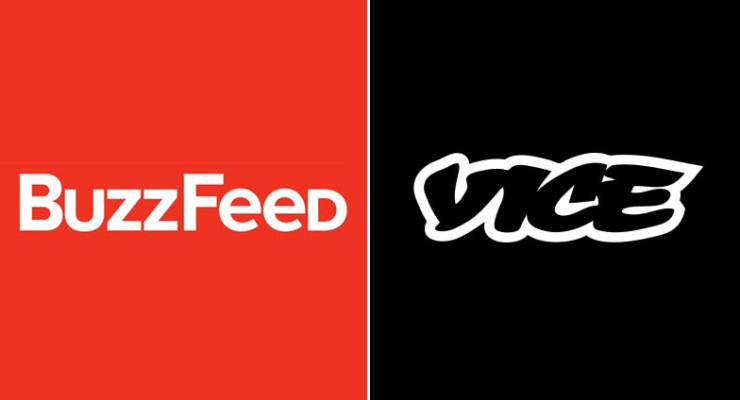
The widening gyre of media decline took a dramatic turn with this past weekend’s media job losses marking a significant shift in underlying media economics, seriously reducing industry options for the future.
So far, job losses — now well into the thousands — are primarily in the US, but the underpinning trends suggest that 2019 will be a similarly dark year for Australian media, and probably sooner rather than later.
Australia is already affected by cuts at local franchises of global media like BuzzFeed and, after the weekend’s announcements, presumably Vice Media. Meanwhile, in the lead-up to Christmas, News Corp quietly rolled out a redundancy round of about 65 journalists (around 4-5%) at its Australian papers.
On the weekend (Australia-time), Vice Media announced it was laying off 250 people, or about 10% of its staff. It’s not clear how many will be affected in Australia. On the same day, US newspaper chain McClatchy announced a 10% cut with 450 redundancies (“buyouts” in US-speak) coming on top of an earlier 3.5% cut last August.
The Vice and McClatchy announcements followed the previous week’s cuts at BuzzFeed (200 jobs going), Verizon’s media division (800) and USA Today publisher Gannett (400).
So what do we learn from this?
Lesson one: the VC rescue is over
The losses at digital start-ups Buzzfeed and Vice (and earlier losses at Mic in November) reveal the failure of the venture capital model in digital media. In VC speak, money raised provides “runway” to grow to sustainability. This runway was burnt building market share but not sustainability. The burn rate helped fund news and global expansion, such as to Australia, and both news and Australian franchises are particularly at risk.
In a related signal of the end of VC’s rescue of media, leading US start-up media accelerator Matter VC has announced that it is suspending further development and investment rounds.
Australia’s own nascent media start-ups are largely boot-strapped and so less exposed to the withdrawal of VC funding.
Lesson two: beware the hedge funds
The cuts in traditional US media come from a particularly insidious financial reengineering: hedge funds buy old media not to save them, but to milk them. Old media may have a limited life, but they have revenues to be milked all the way to the end. To maximise profit on revenues, they gut cost-centres — or “newsrooms” as we used to call them.
In the US, hedge fund ownership has become the rule, not the exception. Digital First Media (owned by hedge fund Alden Global) has about 60 daily US papers. The private equity hedge fund Fortress owns about 150 mainly small-town papers through GateHouse Media, and one of the major owners of McClatchy is Chatham Asset Management.
If you can’t beat the hedge funds, join them. Gannett has announced its cuts as part of its campaign to fight off a hostile take-over bid from Digital First Media.
Lesson three: it’s still Facebook
The advertising shift to digital platforms is accelerating. Last week, Facebook reported a significant jump in its ARPU (average revenues per user) measure, although user numbers in developed markets went sideways. All those advertising dollars have to come from somewhere. Looks like, as always, it’s from traditional media.
Lesson four: sooner, not later
Australian media has already had a lucky break from hedge funds when private equity players kicked the tyres at Fairfax in 2017 before walking away. However, it’s an open secret that the new Nine has its Australian regional and community newspapers on the market with hedge funds the likely buyers.
There’s also been speculation that News Corp may throw in its regional and community papers as a job lot.
These papers are probably a drag on the overall value of their parent companies. Either company may be better off effectively giving them away. But the price for the papers affected and the communities they serve would be significantly higher.








The NewsCrap people being downsized; now that is good news for hard working Australians.
Our local former Newscorpse weekly, taken over by Seven West, closed recently. Its rival, a locally owned paper, has picked up some of its advertising and seems to be thriving.
You see, when the right kind of people with the right attitude take something over success will come.
As for NewsCrap, due to clever and canny accounting practices the mostly non taxpaying corporate welfare chiseller will continue to wither. Given a likely change of government soon, there will no longer be $ millions of hard working Australian taxes gleefully handed over to the NewsCrap carpetbaggers and main-chancers to continue spreading their bile.
I wonder how many ex-mudorc minions admit that shameful episode on their CVs?